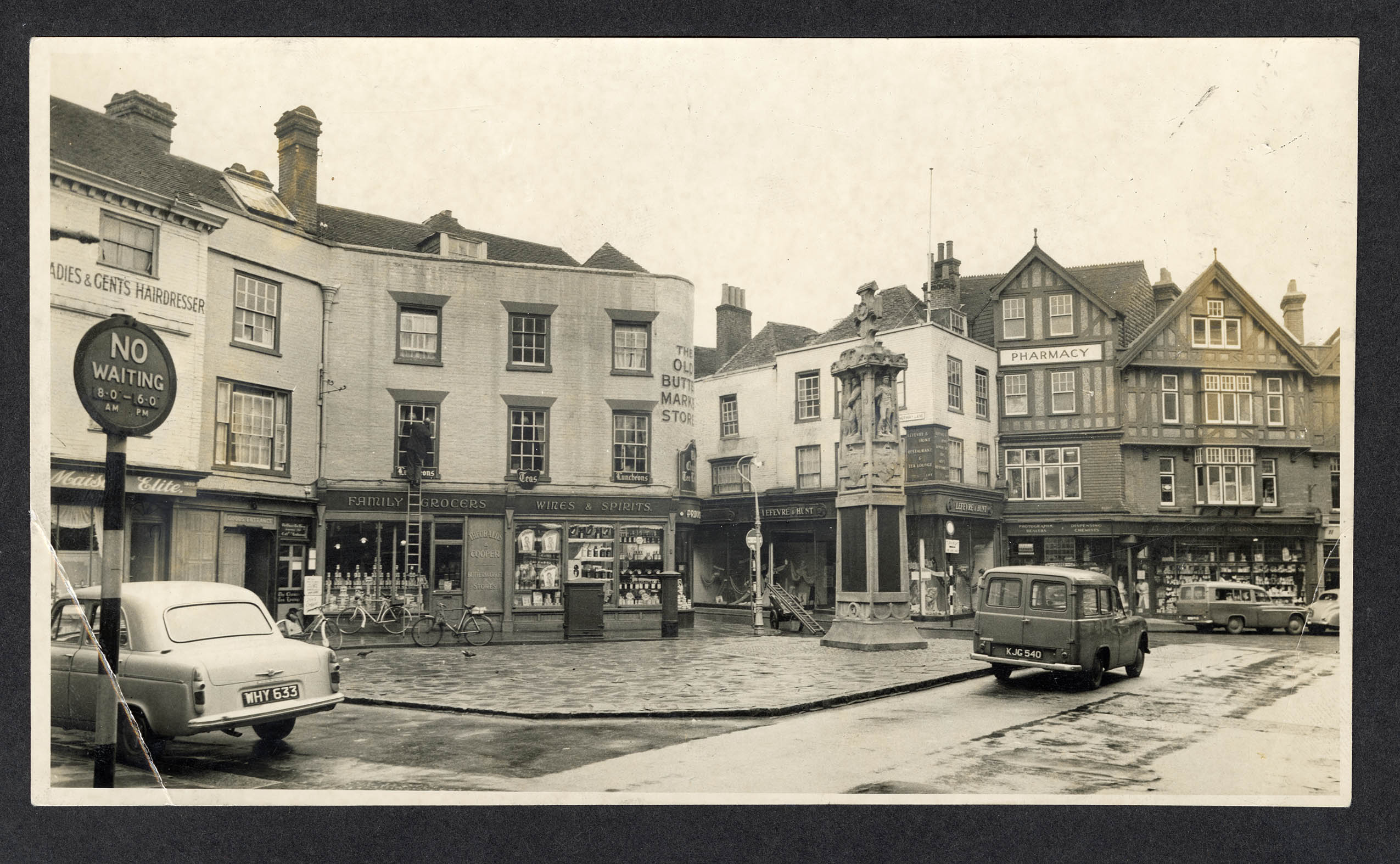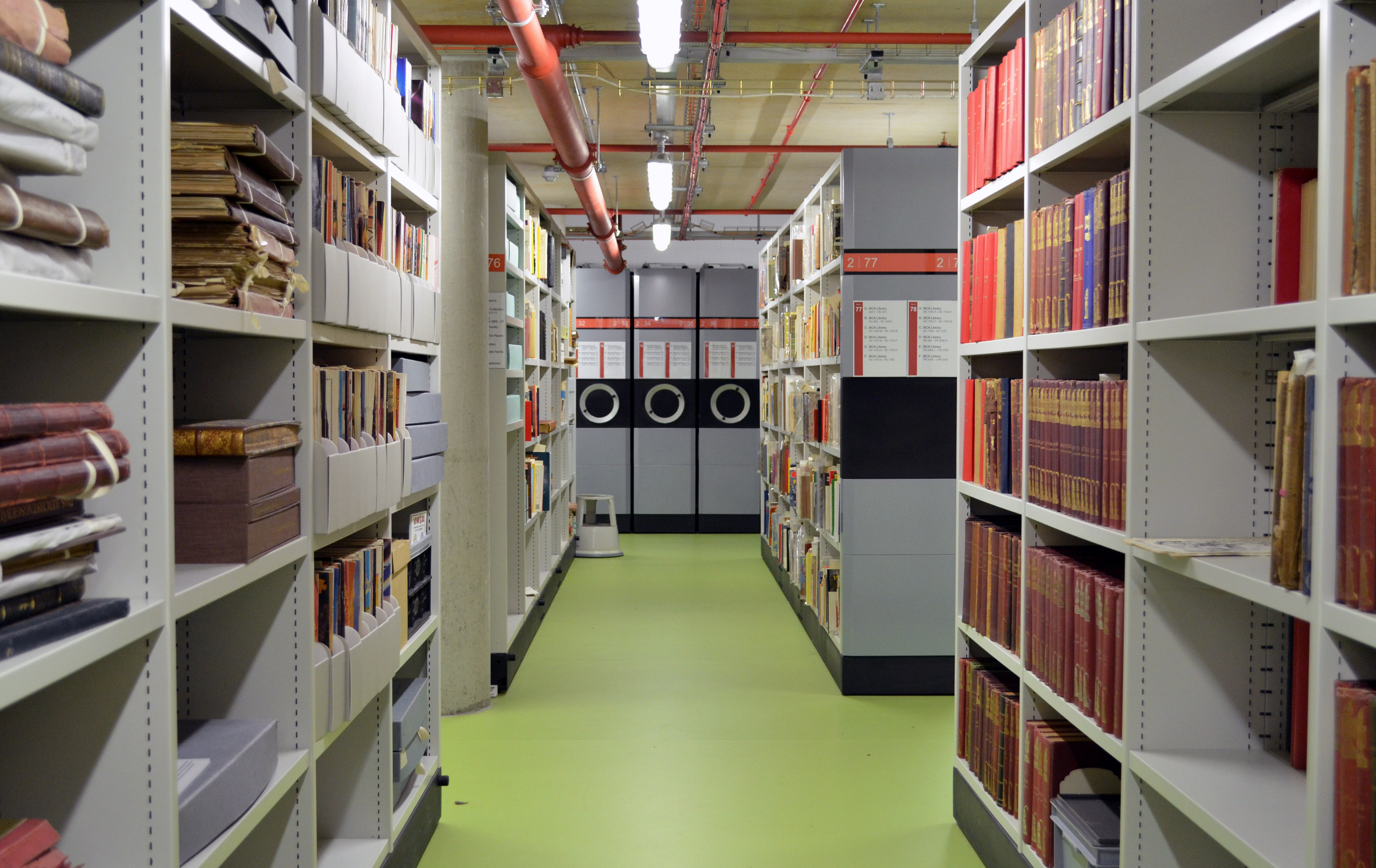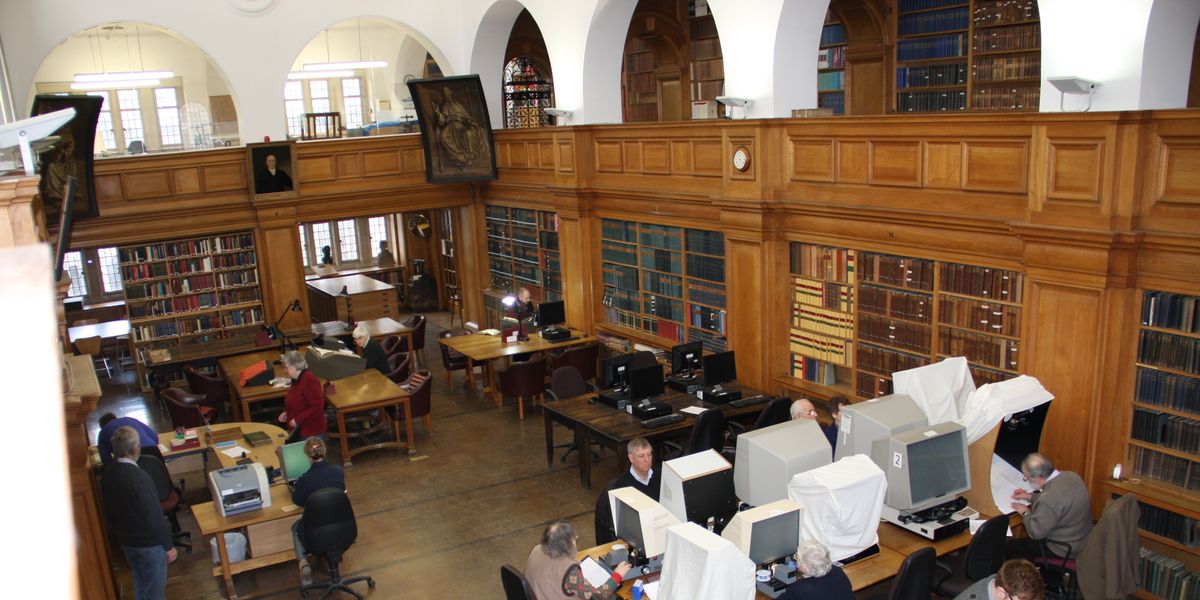What follows is a blog post written by Phoebe Barnes, a Kent student who completed a week-long internship with Special Collections and Archives in November 2024 as part of her research for her dissertation.
My Week at the University of Kent’s Special Collections and Archives: Preserving the Past and Shaping the Future
[In November 2024] I had the opportunity to intern at the University of Kent’s Special Collections and Archives, immersing myself in the captivating world of historical preservation. During my time there, I gained invaluable hands-on experience in archival preservation techniques, delved into Canterbury’s rich history, and engaged in insightful conversations with the archivists whose work upholds these collections. My week spent alongside this dedicated team not only deepened my appreciation for the significance of archives but also illuminated their evolving role as stewards of community memory and culture in the digital age.

Photograph taken at the corner of Burgate and Buttermarket c.1950s, Crampton Canterbury Photograph Collection (LH/CANT/PHO/12/102)
Rediscovering Canterbury in the 1940s Through Historical Photographs
One of my initial tasks involved rehousing a collection of photographs from the 1940s—a delicate process that allowed me to interact directly with images from a bygone Canterbury. As I transferred these photographs into archival-quality storage, I was struck by the scenes captured on film: familiar landmarks in their original, often unexpected settings. The photos challenged my assumptions about the city’s past—Canterbury’s streets were not as cobbled as they are now! This work underscored for me the power of visual history, highlighting the importance of preserving such images for future generations to appreciate and learn from.
Assisting with Seminars and Learning Preservation Techniques
Throughout the week I assisted in preparing for student seminars, which introduced students to historical materials in an engaging, hands-on environment. Observing the students’ interactions with these primary sources offered an inspiring perspective on how archives can bring history to life, sparking interest in research, history, and archival studies. Witnessing their reactions to these authentic materials reinforced my understanding of archives as vibrant educational resources.
In addition to seminar preparation, I took on a variety of preservation tasks, from meticulously cleaning fire-damaged sketchbooks with specialised brushes and smoke sponges, to creating custom protective covers for books dating back to the 1800s. These activities required patience and precision. Each task reminded me of the care and dedication that preservation work demands to ensure that these historical treasures endure for future generations.
Touring the Stronghold and Discovering Preventive Preservation Practices
One of the highlights of my internship was a tour of the archive’s stronghold, where the most sensitive and rare materials are housed. In this climate-controlled environment, I observed the extensive preventive measures employed to preserve delicate items, from temperature and humidity control to collaborative conservation efforts with experts, including those from Canterbury Cathedral. I was struck by the proactive nature of preservation work – it’s not solely about repairing items but involves safeguarding them from deterioration in the first place.
Visiting Canterbury Cathedral’s Libraries and Discussing the Role of Modern Archives
Mid-week, I had the chance to visit the archives, reading room, and libraries at Canterbury Cathedral, where I continued to explore primary sources and connect with experienced archivists and conservationists. Our conversations with the collections team were particularly thought-provoking, as we discussed the evolving role of archives in today’s world. Archives are no longer static repositories of old documents; they are dynamic spaces that foster a sense of community and historical awareness. The team shared insights into how archives support cultural identity, encourage historical understanding, and promote collective memory.
A significant aspect of this work involves digitisation, which enables archival materials to reach a wider audience and facilitates access regardless of geographic limitations. By digitising fragile items, archives allow individuals around the world to engage with history, explore primary sources, and take part in the shared experience of discovering our collective past. This commitment to accessibility and outreach emphasises how archives are adapting to the demands of the modern world, making history available to all.
Reflections on a Transformative Experience
Reflecting on my week at the University of Kent’s Special Collections and Archives, I am incredibly grateful for the experience. While I entered this internship with a sociological view of the archival space, I left with a newfound respect for the archival practice and a deeper appreciation of the vital role archives play within the community. From handling historical photographs and learning preservation techniques to discussing the importance of archives in community building, each day provided fresh insights into this meaningful work.
I extend my heartfelt thanks to Christine, Beth, Clair, and the entire team for their guidance and mentorship. This internship revealed to me that archives are far more than mere collections of historical documents; they are dynamic, accessible resources that promote education, community engagement, and a shared appreciation of our past. This experience has inspired me to consider the many ways we can support and interact with archives to ensure these invaluable collections remain accessible and preserved for generations to come.


